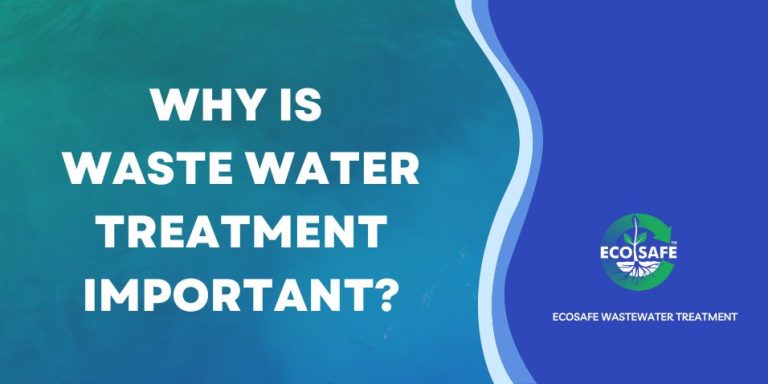What Does Reclaim Waste Do?
What Does Reclaim Waste Do?
Blog Article
Examine This Report on Reclaim Waste
Table of ContentsReclaim Waste - An OverviewEverything about Reclaim WasteThe Only Guide for Reclaim WasteReclaim Waste Fundamentals ExplainedSome Known Details About Reclaim Waste
Discover the kinds, incidents, and forms of fluid waste. Domestic sewage waste describes the waste and products from a property septic system. This sort of waste is created by humans in residences, schools, and various other buildings. This only consists of septic systems that have a drain field. The correct administration and disposal of residential sewer waste require fluid waste to be transferred to a sewer therapy plant where the proper techniques and devices are put on detoxify and throw away waste.
Industrial waste usually includes potential dangers, such as combustible materials or a combination of fluid and strong waste products, and calls for an extra innovative and thorough disposal procedure. The disposal of commercial waste typically involves the purification of waste prior to transportation to make certain safe and correct disposal. Industrial waste is created from results and runoff of commercial processes and manufacturing.
This sort of waste can not make use of the exact same sewer monitoring transportation or processes as septic or business liquids. The hazardous waste monitoring procedure needs the assessment and testing of liquid waste before it undertakes the disposal process (liquid waste disposal). Drainage waste is the liquid waste that originates from overflow and excess stormwater in extremely populated locations or cities
Runoff waste can cause contamination and flooding if not taken care of effectively. Discover more concerning sewage system cleansing and waste management. Guaranteeing appropriate waste administration can protect against disasters and reduce environmental harm. Both people in household setups and specialists in business or manufacturing sectors can benefit from understanding the processes and laws of liquid waste monitoring.
What Does Reclaim Waste Do?
Call PROS Solutions today to find out about our waste monitoring and disposal solutions and the appropriate methods to look after the liquid waste you produce.
(https://www.provenexpert.com/reclaim-waste/)Do you understand what occurs to your water when you pull the plug, purge the toilet or drain pipes the cleaning maker? No? Well, it deserves understanding. This so-called 'wastewater' is not only a vital source yet, after treatment, will certainly be launched to our land, rivers or the sea. Made use of water from bathrooms, showers, baths, cooking area sinks, laundries and commercial procedures is referred to as wastewater.

water utilized to cool down machinery or clean plant and equipment). Stormwater, a form of wastewater, is overflow that streams from agricultural and metropolitan locations such as roofs, parks, gardens, roads, courses and gutters right into stormwater drains pipes, after rainfall. Stormwater flows unattended straight to local creeks or rivers, ultimately reaching the ocean.
The Ultimate Guide To Reclaim Waste
In Queensland, the majority of wastewater is treated at sewage therapy plants. Wastewater is transported from residential or industrial sites through a system of sewage systems and pump terminals, called sewerage reticulation, to a sewage therapy plant. City governments build, keep and run most sewer therapy plants. Operators are licensed under the Environmental Management Act 1994 to discharge cured wastewater at an appropriate environmental requirement right into rivers.
The Department of Natural Resources advises local federal governments about handling, operating and keeping sewage systems and treatment plants. In unsewered areas, regional governments may require homeowners to mount private or household sewer treatment systems to treat residential wastewater from commodes, kitchens, bathrooms and washings. The Division of Natural Resources authorises the use of house systems when they are confirmed to be reliable.
In some brand-new communities, therapy of some stormwater to remove trash, sand and gravel has started using gross toxin catches. Wastewater treatment happens in 4 stages: Gets rid of solid issue.
Wastewater then moves right into large containers where solids work out and are gotten rid of as sludge. Grease and residue are skimmed from the surface. Utilizes tiny living organisms recognizes as micro-organisms to break down and eliminate remaining liquified wastes and great fragments. Micro-organisms and wastes are integrated in the sludge. Gets rid of nitrogen and phosphorus nutrients that could trigger algal blossoms in our waterways and endanger marine life.
The Of Reclaim Waste
Nutrient removal is not readily available at all sewer treatment plants since it requires costly specialized tools. Clear liquid effluent created after treatment might important link still have disease-causing micro-organisms - liquid waste removal melbourne.

Most wastewater streams right into the sewerage system. Under the Act, neighborhood governments provide authorizations and licences for ecologically appropriate activities (ERAs) entailing wastewater launches that might have a local impact.
An Unbiased View of Reclaim Waste
Otherwise, samples are taken for laboratory analysis. Commonly many tests are required to develop the degrees of each of the various contaminants such as oils, hefty steels and chemicals in water. Surveillance supplies valid details regarding water quality and can confirm that licence problems are being met. The information acquired through monitoring provides the basis for making water top quality choices.
Report this page